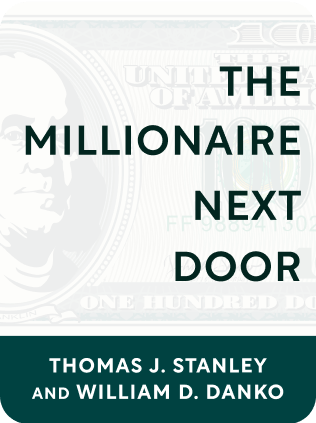

This article is an excerpt from the Shortform book guide to "The Millionaire Next Door" by Thomas J. Stanley and William D. Danko. Shortform has the world's best summaries and analyses of books you should be reading.
Like this article? Sign up for a free trial here .
Why are there so many self-made millionaires? What are the millionaire businesses that made self-employed millionaires rich?
There are many self-made millionaires because entrepreneurship is very important for creating and preserving substantial wealth. Millionaire businesses are typically in dull industries like Auto parts, consulting, real estate development, and others that are not unusually susceptible to economic downturns.
Read on to discover the secrets of self-made millionaires.
Self-Made Millionaires Are the Norm
As previously noted, 80% of millionaires are self-employed, compared to 15% of the general population. Put another way, self-employed people are four times more likely to be millionaires than those who work for others. (Of course, most business owners aren’t wealthy; many don’t make a profit.)
Those who own businesses in more profitable industries by definition make more money, although once-profitable industries can go into decline (for instance, the coal industry) as a result of external factors. Even having a profitable business isn’t a guarantee of wealth—regardless of your income, you won’t accumulate wealth if you’re an undisciplined spender.
That said, if you’re frugal, invest, and own a profitable business, you have a good chance of joining the ranks of self-made millionaires.
The Challenges and Benefits of Self-Employment
Self employed millionaires understand the challenges and risks of running your own business. For that reason, fewer than one in five millionaire entrepreneurs hand their business over to their children to operate.
Instead, self-made millionaires urge their adult children to take a less risky path and become self-employed professionals, such as doctors, attorneys, engineers, accountants, and architects. Millionaires are five times more likely than other parents to send children to medical school and four times more likely to send them to law school (few people in these fields fail to make a profit, and the professions are a lot more profitable than most small businesses).
Other benefits of being a self-employed professional include:
- A professional’s biggest assets are knowledge and intelligence, which can be taken anywhere.
- While education for many professions is expensive and lengthy, the long-term benefits such as high earnings over a lifetime outweigh the costs.
A downside is that adult children who are self-employed professionals may seek subsidies from their parents if they get caught up in the consumer lifestyle often associated with these professions instead of living frugally and investing their income.
The Millionaire Businesses of Self-Employed Millionaires
The types of businesses owned by many self-made millionaires are considered dull by most people. They represent a wide variety of fields; they provide a product or service that’s needed, and isn’t usually susceptible to downturns. These businesses also don’t face much competition. They’re consistently profitable.
Following are some businesses owned by the self-made millionaires surveyed for The Millionaire Next Door:
- Building materials manufacturers
- Prefab housing
- Auto parts
- Auctioneer/appraiser
- Apparel manufacturers
- Janitorial services
- Human resources consulting
- Meat processor
- Long-term care facility owner
- Coin and stamp dealer
- Mobile home park owner
- Office temp recruiting service
- Paving contractor/excavator
- Pest control service
- Public relations
- Engineering and design
- Fundraiser
- Real estate developer
- Beer wholesaler
- Construction equipment dealer
- Restaurant chain owner
These types of businesses aren’t exciting and aren’t typically associated with high status or lavish lifestyles. They don’t interest under-accumulators, whose primary needs are consumption and showing off their status.
In contrast, self-employed millionaires’ primary needs are to create wealth and become financially independent by building a business. Operating their businesses profitably despite risks and challenges brings them a lot of satisfaction. In addition:
- They control their destiny.
- They have confidence they can solve any problem.
- Their potential income is unlimited.
- The lessons of running a business make them stronger and smarter.
In the end, however, it’s the character and habits of the individual more than the type of his or her business that predict wealth.

———End of Preview———
Like what you just read? Read the rest of the world's best book summary and analysis of Thomas J. Stanley and William D. Danko's "The Millionaire Next Door" at Shortform .
Here's what you'll find in our full The Millionaire Next Door summary :
- How and where most millionaires live
- Surprising characteristics and habits shared by many millionaires
- How you can become a millionaire over time if you have the determination






